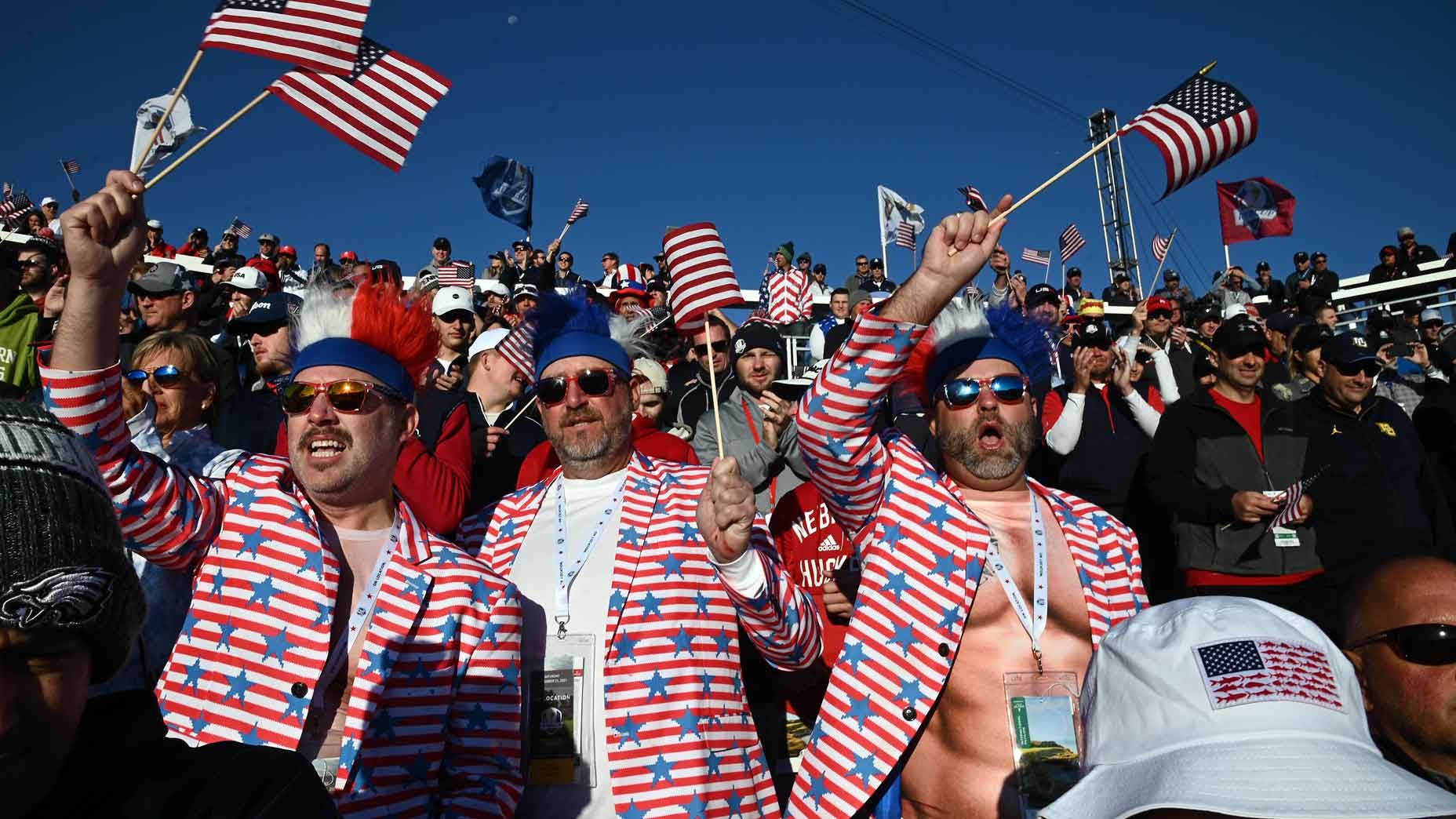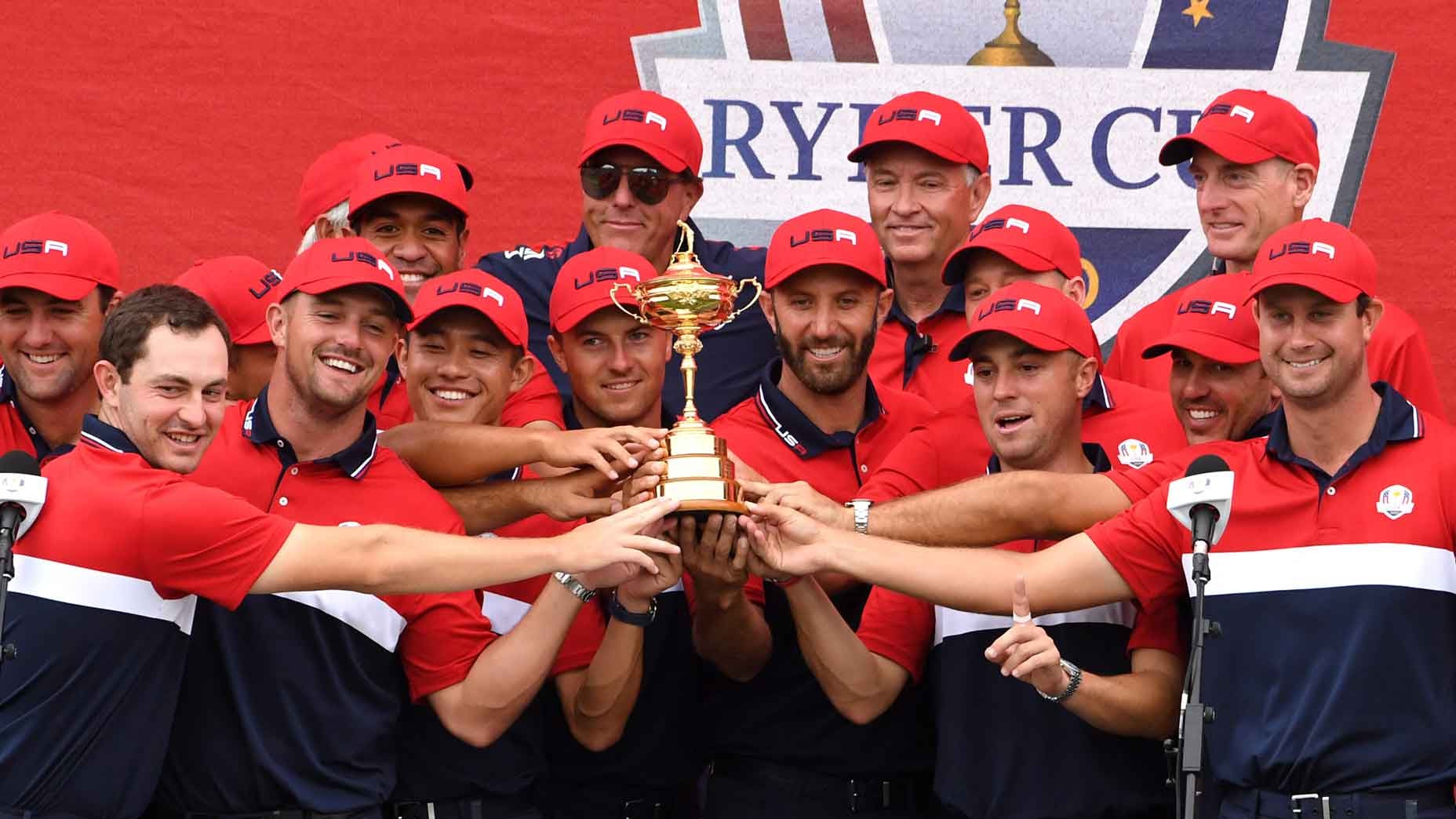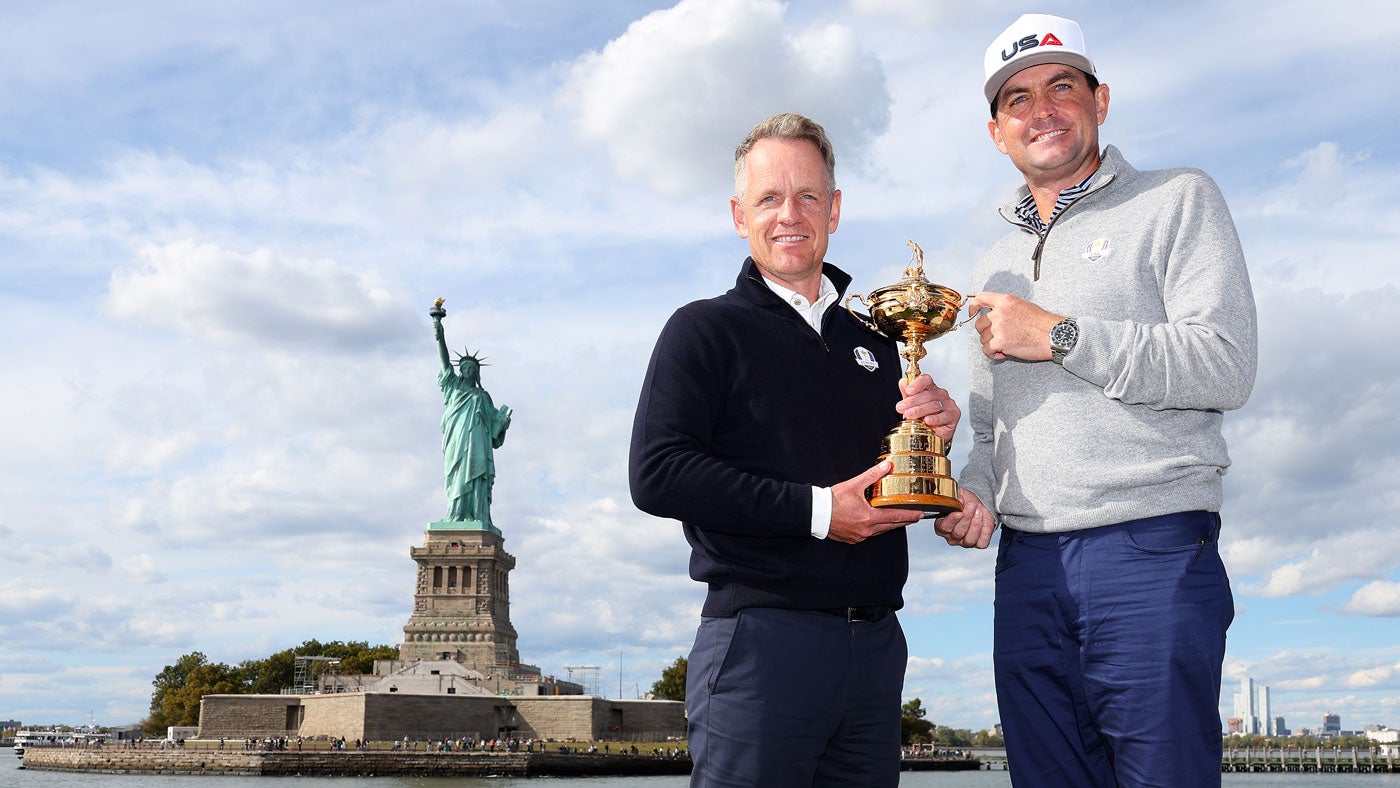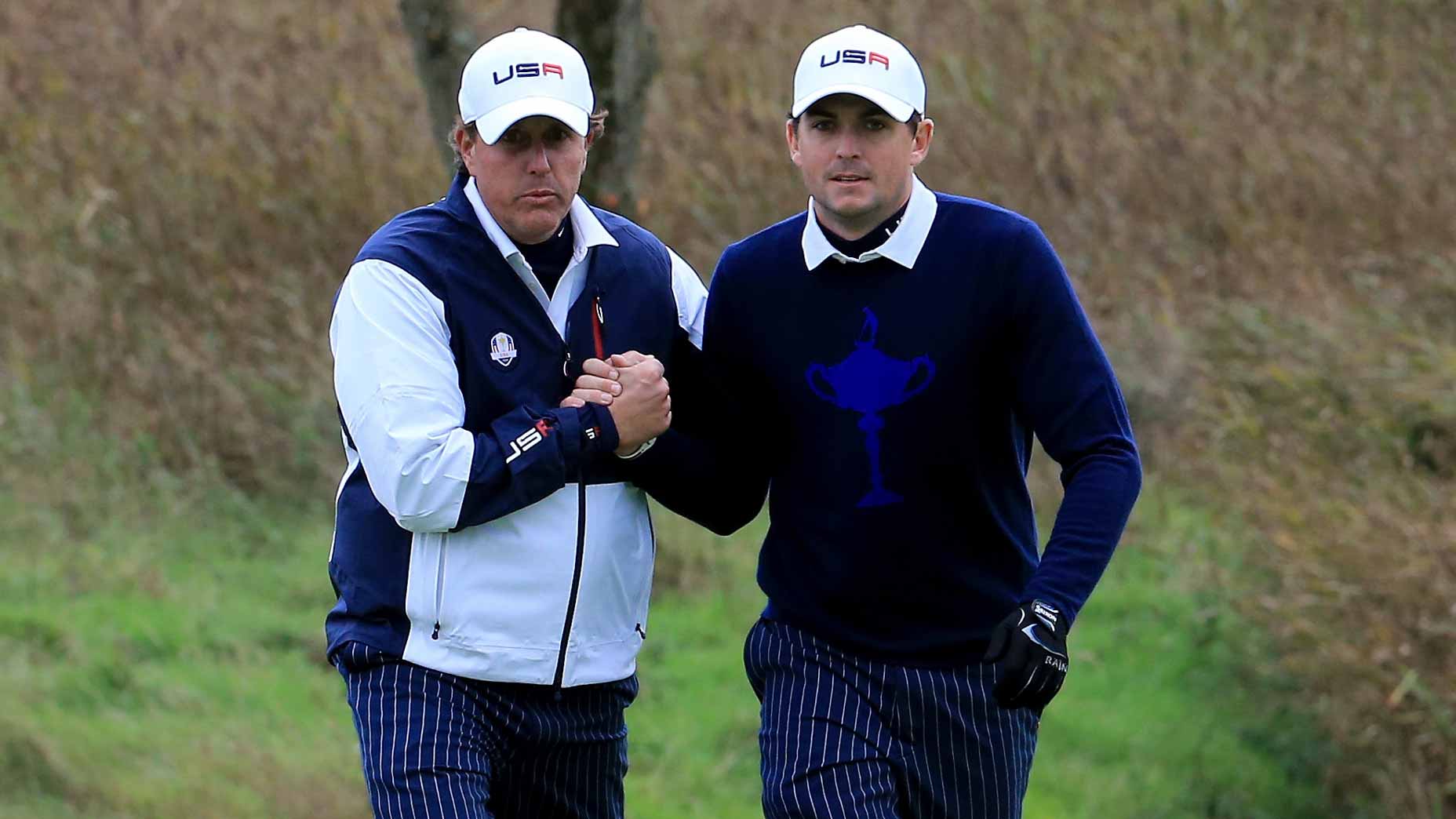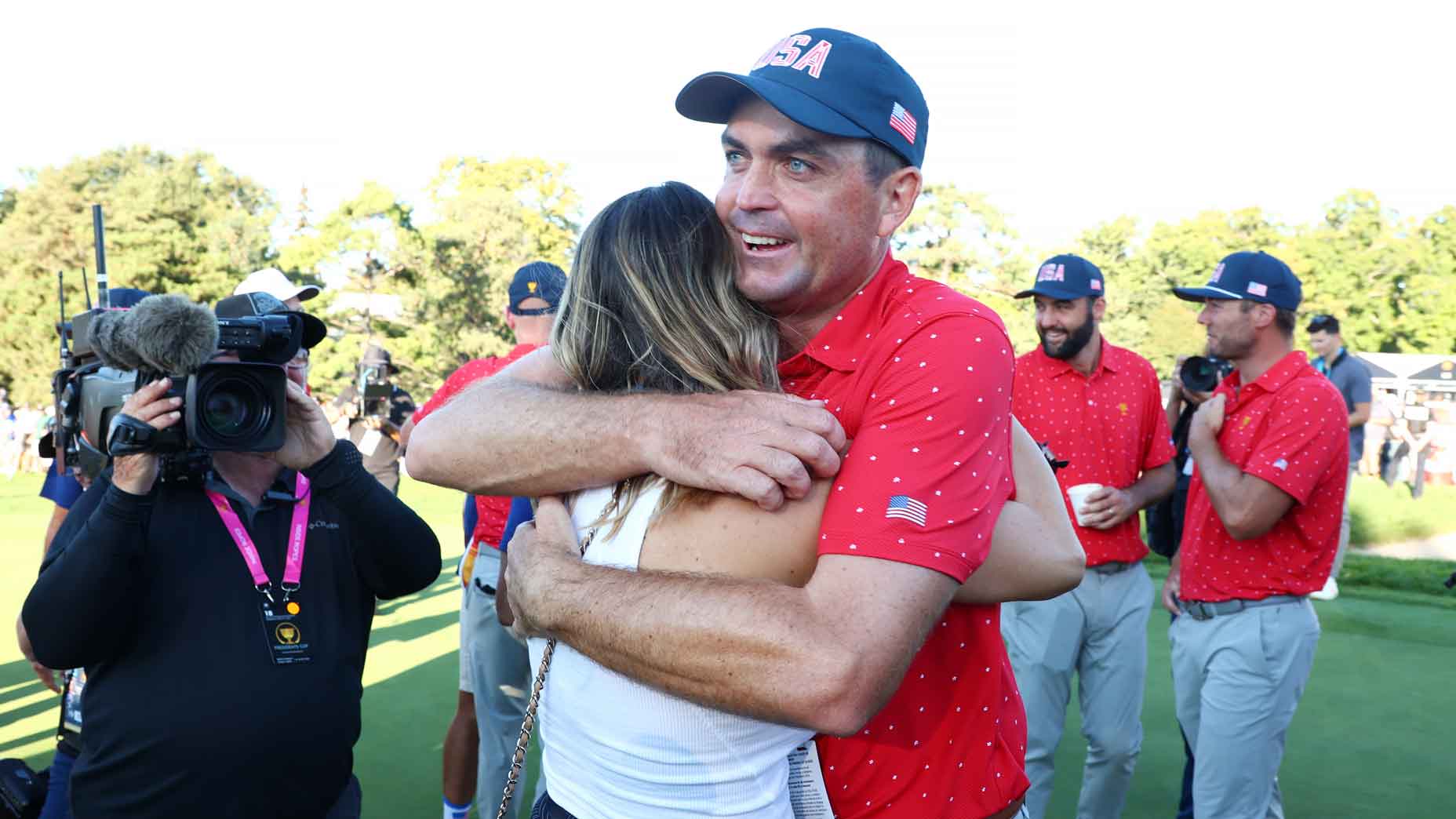How much money do Ryder Cup players get? It can be a controversial topic

How much money do Ryder Cup players receive for competing in the prestigious event? Some might say it's been a controversial topic.
Getty Images
On Friday afternoon at the Ryder Cup, not long after Robert MacIntyre and Justin Rose won the last two holes to earn a half-point in their match against Max Homa and Wyndham Clark, MacIntyre, a Ryder Cup rookie, talked about what it felt like making his debut on the raucous 1st tee.
“It was everything I dreamed of,” said MacIntyre, a 27-year-old Scottish pro. “It’s the reason that I play golf. People are asking me at the start of the week if this is a reason you play golf, and I mean, now I’ve realized that this is the reason that I play golf.”
MacIntyre’s summary of his first Ryder Cup experience is not an outlier. The pride of playing for your country — and playing well enough in the years prior to qualify for the team itself — is a massive career goal for American and European pros.
Pride and the fire of fierce competition, the vast majority of pros would say, is why they play the Ryder Cup — because they certainly don’t play it for money.
The Ryder Cup famously does not pay its players or hand out a winning purse to the victors. Instead, members of the U.S. Ryder Cup team each receive $200,000 to donate to a charity of their choice. According to the PGA of America, 20 percent of Ryder Cup media rights fees also go to PGA Tour players’ deferred compensation plans.
Ryder Cup payment controversy
The Ryder Cup has been played since 1927, and the question regarding player compensation has often popped up over the years, most notably in 1999, prior to that year’s Ryder Cup at Brookline in Massachusetts.
“It could happen this September,” David Duval told Golf Digest back then, when asked about the potential for a Ryder Cup boycott in 1999. “More than likely, though, next time in 2001. Certainly within two more. It’s imminent. This is just from talking to the guys. Some of them are fed up.”
The Ryder Cup, which is run by the PGA of America, has turned into a wildly profitable event for the organization, although much of the revenue it generates goes toward its other grassroots programs. Some players took issue with that profit not being shared, but also the fact that they didn’t have any say in how it was spent.
That led to more conversations and meetings, and it was decided players would receive money to donate to charities of their choice. In February 2000, that change was officially announced by the PGA of America.
“I don’t think anybody was ever looking for the PGA of America to give up all the money,” Duval told ESPN, after the announcement. “They were the ones that put up the risk and took the hits when [the Ryder Cup] wasn’t doing any good. It’s nice to be able to direct some of the charitable money to where you can feel it can be a benefit back home.”
The latest alleged instance of this controversy came this year, when Sky Sports’ Jamie Weir reported on Saturday at the Ryder Cup, citing several sources, that Patrick Cantlay has expressed frustration with players’ lack of payment in the Ryder Cup. Cantlay has yet to comment on the report.
The PGA of America made public the charities players donated to at the 2021 Ryder Cup, although that information has yet to be shared for this year.
European players have long received a gift from their captain for playing in the event. According to the DP World Tour, some of its profits are put into a Ryder Cup Development Trust to help develop grassroots projects in Europe. This trust works with current and past Ryder Cup players on specific projects in their home countries.
Said European star Jon Rahm on Tuesday, “I don’t have to get paid to come here and perform in front of people, to be honest.”




